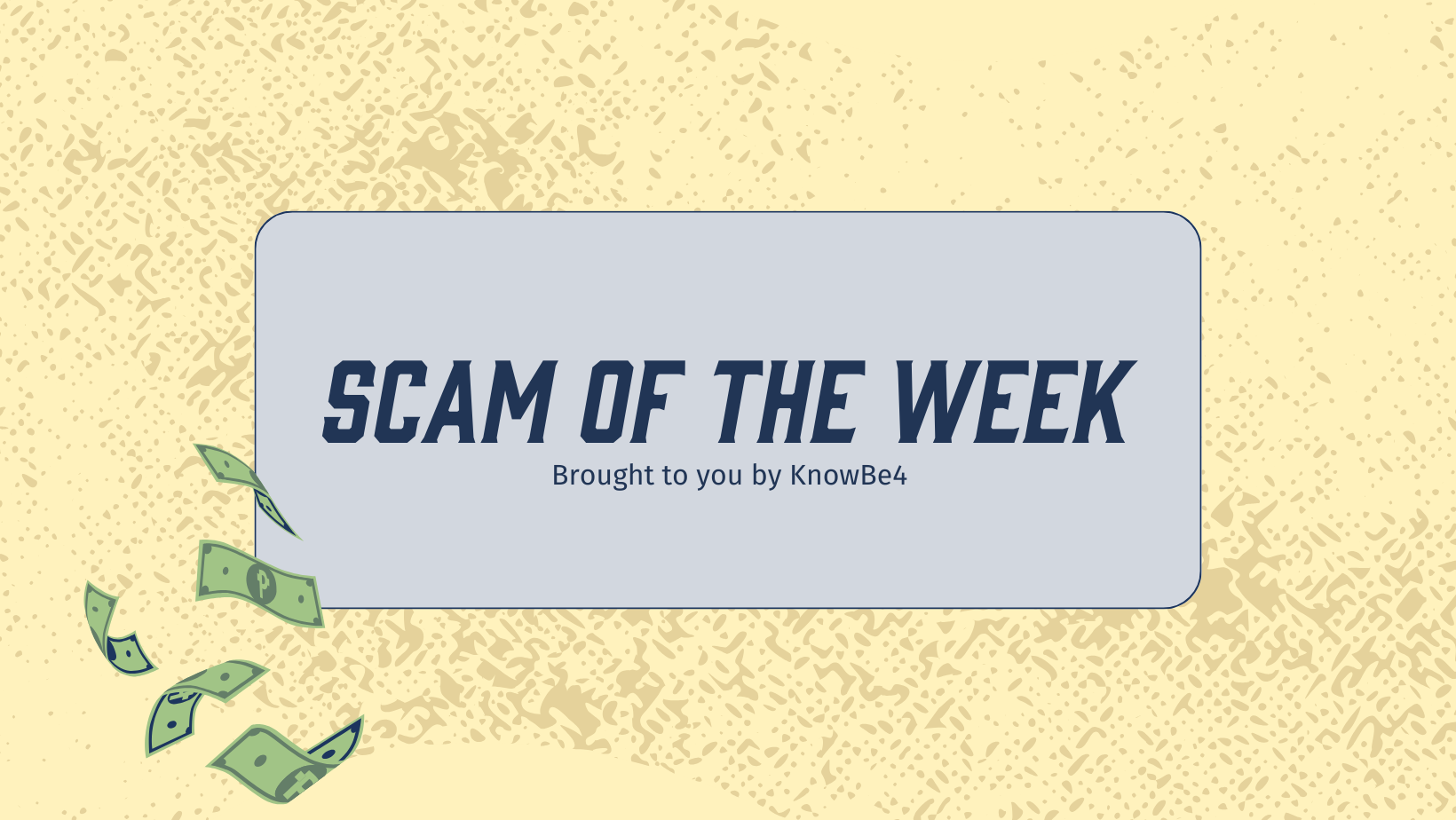Our friends at KnowBe4 notify us of popular scams each week used by cybercriminals. We want to pass the word to our community so you can avoid falling victim to their antics.
| Search engines, like Google, are so popular that many people use the search feature instead of typing a URL. For instance, people may quickly search for their electricity provider’s name to find the online payment portal. And for this week’s scam, that’s exactly what cybercriminals want you to do. This scam tries to trick you into clicking on a fake ad instead of the billing portal that you’re trying to find. The scammers purchase a variety of fake utility payment advertisements, and you see those ads during your searches. They know that they can trick you more easily if you contact them instead of them reaching out to you. If you click on one of these ads, you will be prompted to dial a phone number. Dialing the number puts you directly in contact with a scammer. They may try to scare you by saying your bill must be paid immediately. Or they may tempt you with an offer to help you save money—but only if you act now. Neither the advertisement nor the person you are talking to is legitimate. Paying them won’t help with your utility bills, but the scammer might use you to help pay their own bills! Follow these tips to avoid falling victim to a utility bill scam: Remember, anyone can purchase an advertisement. Be cautious when clicking on ads, even if they seem relevant to you. Scammers often ask you to make payments using unusual methods, such as gift cards or money transfers. If something seems strange about a financial transaction, stop immediately!If an offer seems too good to be true, it probably is. Always stop and think before taking action. |
| Text by: The KnowBe4 Security Team KnowBe4.com |

